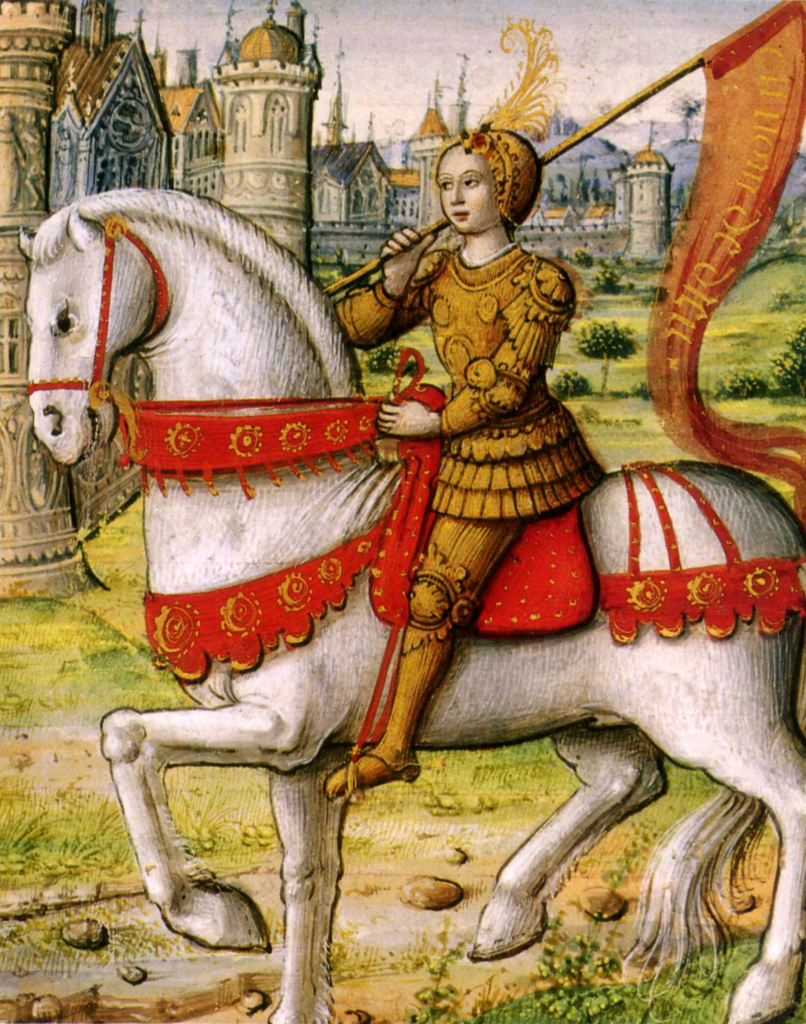Thursday
Kudos to Harold Meyerson of The Washington Post for linking the visit of Pope Francis to a scene from George Bernard Shaw’s play St. Joan. It’s a perfect fit.
Meyerson is discussing how uncomfortable the GOP must be—at least those in the party who want to cut food stamps, healthcare, and other programs for the poor—over the visit of a man who excoriates capitalism and the prioritizing of money over people. While acknowledging that Benedict and John Paul II also issued encyclicals criticizing capitalism, Meyerson notes that Francis has gone even further:
Where Francis has departed from his predecessors is that he has moved from talking the talk to walking the walk. The simplicity of his lifestyle, his emphasis on spending time among the poor and giving workers more control of economies where the deck, as Sen. Elizabeth Warren (D-Mass.) has said, is stacked against them, are all radical departures from past papal practice. So, too, is the tolerance he has shown to gays, lesbians and divorcees — a tolerance that has roused the ire of church conservatives, for whom intolerance to these and kindred groups seems to express the essence of their Catholicism.
Then Meyerson brings in Shaw:
A pope infused by the spirit of St. Francis of Assisi and Jesus poses a threat to the current economic order. Conservatives are right to fear and despise him, as they would be right to fear and despise his role models. The final scene of George Bernard Shaw’s play “Saint Joan” places Joan of Arc in a dream sequence in which all her persecutors, once she’s safely dead and canonized, praise her and acknowledge her sainthood. When she asks them if she should return to Earth and live again, however, they answer with fear, loathing and a resounding “no.” That, in essence, is the conservatives’ response to Pope Francis, and to the spirit and faith he embodies.
Here’s the passage from St. Joan. Charles, the Dauphin that Joan crowned, is dreaming 25 years after her execution. Suddenly he is given a vision of what will happen, including Joan’s canonization 400 years later. He is also visited by recently vindicated Joan and sees her former persecutors honoring her:
JOAN. My sword shall conquer yet: the sword that never struck a blow. Though men destroyed my body, yet in my soul I have seen God.
CAUCHON [kneeling to her] The girls in the field praise thee; for thou hast raised their eyes; and they see that there is nothing between them and heaven.
DUNOIS. [kneeling to her] The dying soldiers praise thee, because thou art a shield of glory between them and the judgment.
THE ARCHBISHOP [kneeling to her] The princes of the Church praise thee, because thou hast redeemed the faith their worldlinesses have dragged through the mire.
WARWICK [kneeling to her] The cunning counsellors praise thee, because thou hast cut the knots in which they have tied their own souls.
DE STOGUMBER [kneeling to her] The foolish old men on their deathbeds praise thee, because their sins against thee are turned into blessings.
THE INQUISITOR [kneeling to her] The judges in the blindness and bondage of the law praise thee, because thou hast vindicated the vision and the freedom of the living soul.
THE SOLDIER [kneeling to her] The wicked out of hell praise thee, because thou hast shewn them that the fire that is not quenched is a holy fire.
THE EXECUTIONER [kneeling to her] The tormentors and executioners praise thee, because thou hast shewn that their hands are guiltless of the death of the soul.
CHARLES [kneeling to her] The unpretending praise thee, because thou hast taken upon thyself the heroic burdens that are too heavy for them.
And here’s the response to Joan offering to return in a scene that may have been inspired by Dostoevsky’s Grand Inquisitor:
JOAN. Woe unto me when all men praise me! I bid you remember that I am a saint, and that saints can work miracles. And now tell me: shall I rise from the dead, and come back to you a living woman?
A sudden darkness blots out the walls of the room as they all spring to their feet in consternation.
JOAN. What! Must I burn again? Are none of you ready to receive me?
CAUCHON. The heretic is always better dead. And mortal eyes cannot distinguish the saint from the heretic. Spare them. [He goes out as he came].
DUNOIS. Forgive us, Joan: we are not yet good enough for you. I shall go back to my bed. [He also goes].
WARWICK. We sincerely regret our little mistake; but political necessities, though occasionally erroneous, are still imperative; so if you will be good enough to excuse me–[He steals discreetly away].
THE ARCHBISHOP. Your return would not make me the man you once thought me. The utmost I can say is that though I dare not bless you, I hope I may one day enter into your blessedness. Meanwhile, however–[He goes].
THE INQUISITOR. I who am of the dead, testified that day that you were innocent. But I do not see how The Inquisition could possibly be dispensed with under existing circumstances. Therefore–[He goes].
DE STOGUMBER. Oh, do not come back: you must not come back. I must die in peace. Give us peace in our time, O Lord! [He goes].
THE GENTLEMAN. The possibility of your resurrection was not contemplated in the recent proceedings for your canonization. I must return to Rome for fresh instructions. [He bows formally, and withdraws].
Yes, we have our own churchmen and politicians who have made peace with our unequal power distribution and our gross income disparities. Joan’s final words could be ours as well:
JOAN. O God that madest this beautiful earth, when will it be ready to receive Thy saints? How long, O Lord, how long?
